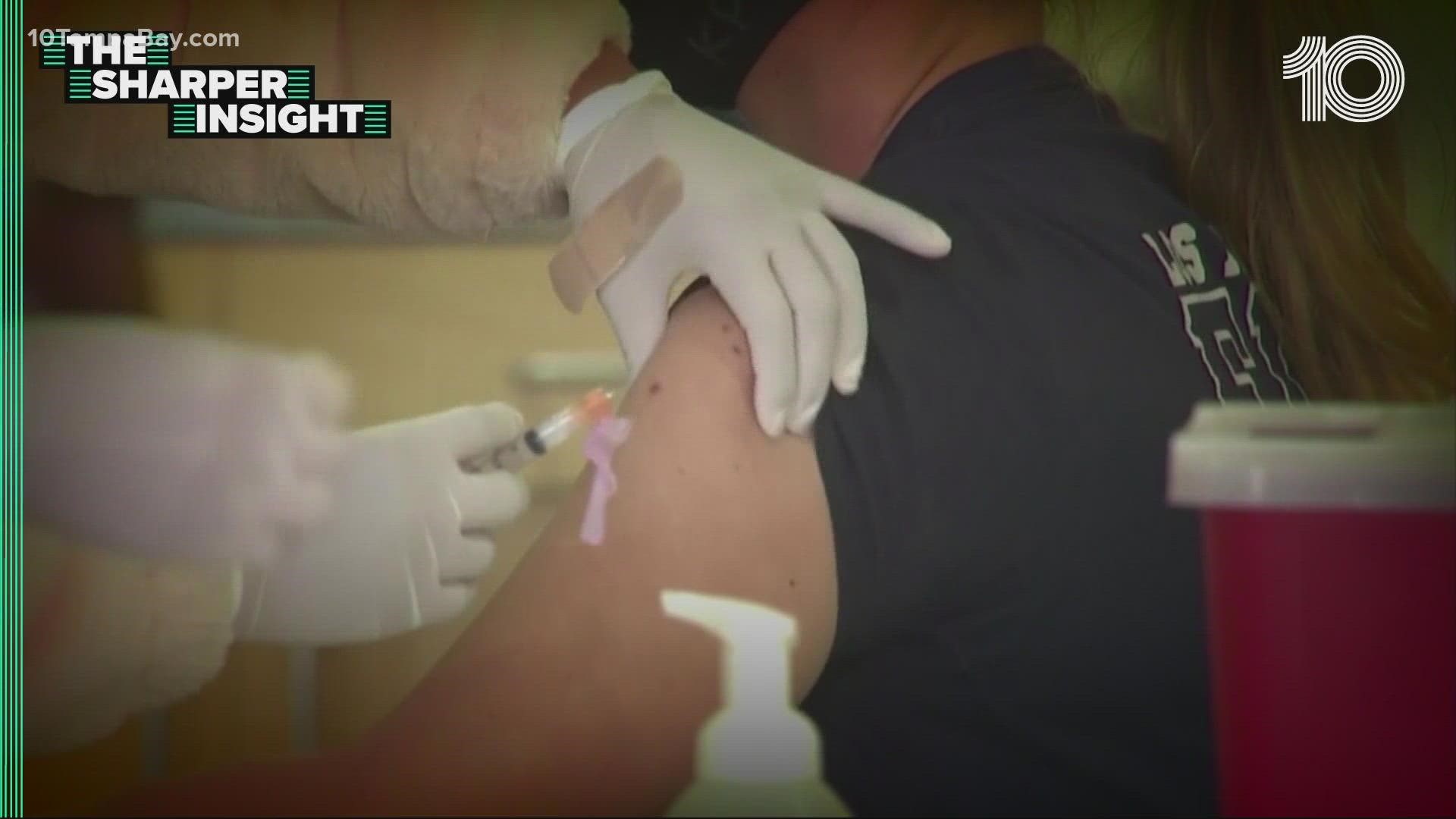TAMPA, Fla — As omicron continues to spread, health experts are urging those eligible to get their booster shot. The CDC recommends people get either Pfizer or Moderna.
Both Pfizer and Moderna offer a booster shot. Both companies said their shots are effective against the omicron variant. When deciding to get a booster shot, some question which to get? Medical experts at USF have your answers.
What's the biggest difference between the booster shots?
Both are MRNA vaccines, but the dosage is different. Moderna offers two different doses. “The normal booster dose at 50 mg and the normal regular dose at 100 mg," said Michael Teng, who serves as the associate dean for USF's College of Medicine. Pfizer on the other hand has a lower dose. “The Pfizer dose is a little less, 30 mg. It still boosts," Teng stated.
Which booster shot is more effective?
“I think there’s such little difference between the Moderna booster and the Pfizer booster that it’s not really worth shopping around at all," Teng answered. Teng explained if you are looking to get boosted, take what's available. "Pfizer or Moderna, it doesn’t really matter, just get a booster," Teng added.
Are there side effects when you get the booster shot?
Teng said if you didn't have side effects getting your initial two vaccines, it's unlikely you will experience side effects with the booster shot.
The Moderna booster does have a higher dose, so that could mean you have a higher chance of experiencing side effects. “I think the Moderna had a little bit more side effects. Probably because it’s giving you a little bit more of a bigger dose," Teng explained.
When is the best time to get boosted?
"This is the time. If you haven’t gotten a booster," Teng stated. He adds that with holiday travel and gatherings, now is the time to protect yourself.
"If you haven’t gotten a booster and you’re eligible, this is the time to get it because we’re coming up on holiday travel season and people are coming down from the north. If omicron is going to spread, this is when it’s really going to spread," Teng said.
It's also important to remember, once you're boosted, antibodies will take time to build. “After you get the booster, it takes 10 to 14 days for your immune system to really build up antibodies and all of that," Teng added.
If you get the booster shot, can you still get COVID?
Yes, you can still get COVID. Teng explained, even though people are vaccinated and boosted, some are catching omicron.
"These cases tend to be generally mild," Teng added.
What have we learned about omicron?
“We’ve been learning the last few weeks how quickly this thing spreads," Teng stated.
That's why as an associate dean and associate professor for USF's College of Medicine, Teng strongly recommends people who are eligible get boosted. If you would like to get a booster shot, here is where you can find a location that is offering boosters.

